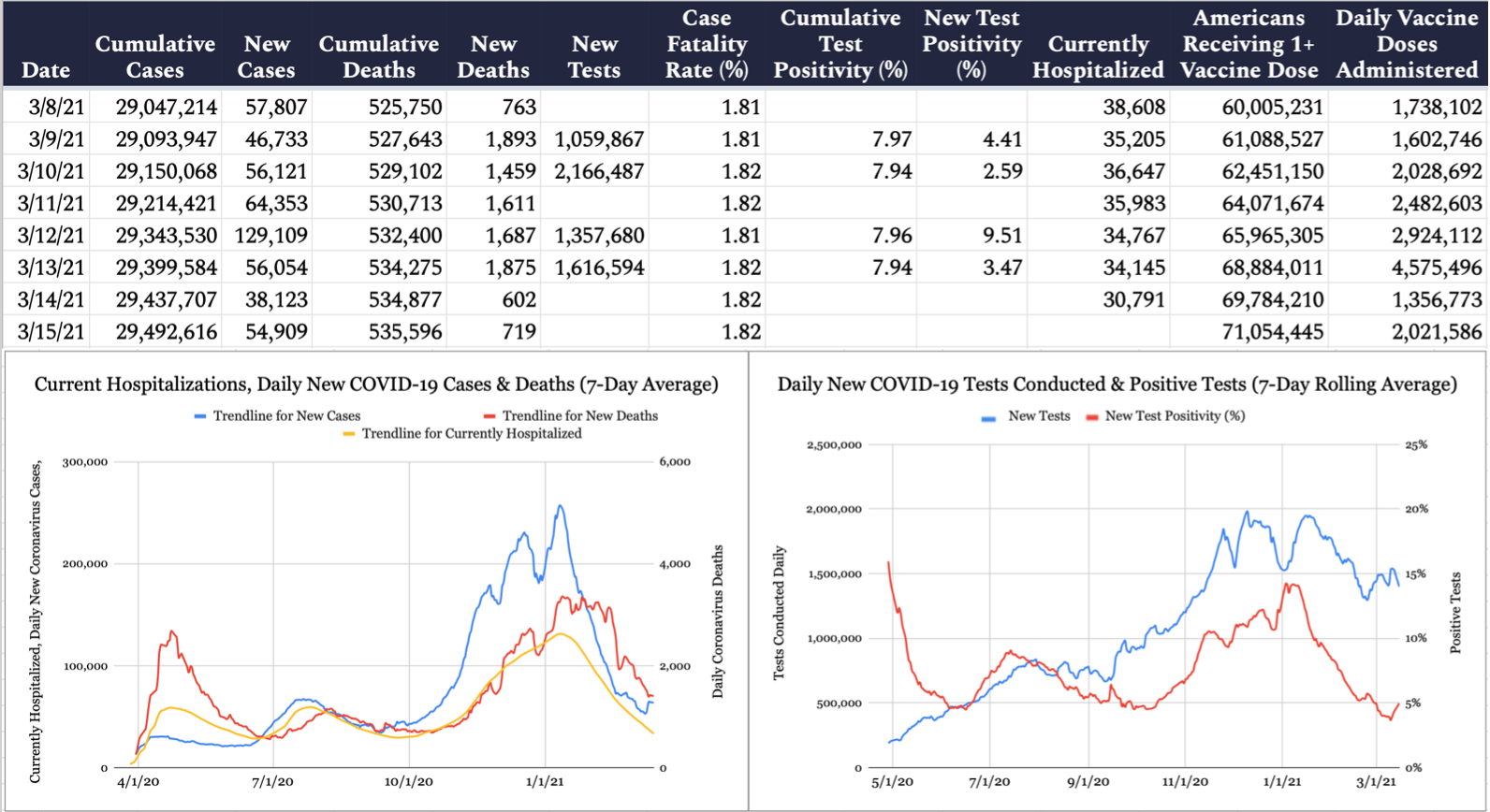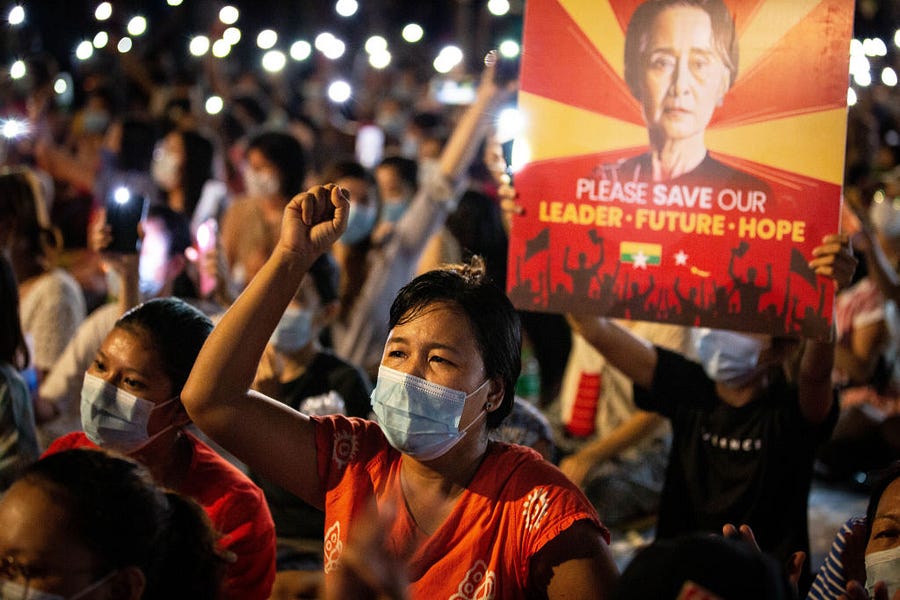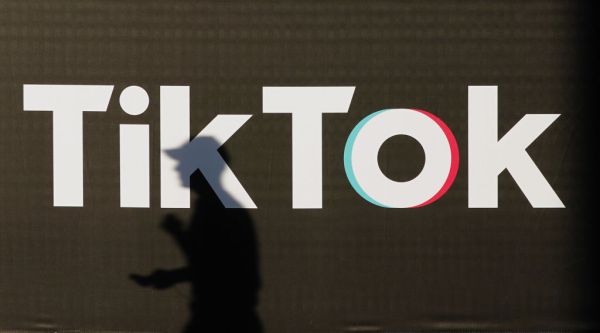Happy Tuesday! Mark your calendars! Dispatch Live is back this Thursday at 8:30 p.m. ET. More details here.
Quick Hits: Today’s Top Stories
-
Germany, France, and Spain on Monday became the latest European countries to temporarily suspend use of AstraZeneca’s COVID-19 vaccine after 37 people (out of the more than 17 million who have received the vaccine) reported blood clotting. The WHO and European Medicines Agency (EMA) said there is no data to show the vaccines caused the clots. “Many thousands of people develop blood clots annually in the EU for different reasons,” the EMA said.
-
Two men were charged by federal authorities with assaulting three U.S. Capitol Police officers, including Officer Brian Sicknick, who died one day after the raid on the Capitol. Video evidence included in the affidavit shows the men spraying the officers in the face and eyes with an unknown chemical substance, but the cause of Sicknick’s death is still unconfirmed.
-
The Senate voted 51-40 on Monday to confirm Rep. Deb Haaland of New Mexico as secretary of the interior. Haaland is the first Native American to lead a Cabinet agency.
-
The Congregation for the Doctrine of the Faith on Monday reiterated the Catholic Church’s opposition to blessing same-sex unions. The declaration does not “preclude the blessings given to individual persons with homosexual inclinations,” but rather “declares illicit any form of blessing that tends to acknowledge their unions as such.”
-
Because of extreme overcrowding in existing border facilities, the Biden administration is planning to use the Kay Bailey Hutchison Convention Center in downtown Dallas to shelter approximately 2,300 undocumented migrant teenagers.
-
The United States confirmed 54,909 new cases of COVID-19 yesterday per the Johns Hopkins University COVID-19 Dashboard. An additional 719 deaths were attributed to the virus on Monday, bringing the pandemic’s American death toll to 535,596. According to the Centers for Disease Control, 1,356,773 COVID-19 vaccine doses were administered yesterday, and 69,784,210 Americans have now received at least one dose. (Some data have been more difficult to compile since the COVID Tracking Project went offline last week.)

The Junta Crackdowns
After a month and a half under illegitimate military leadership, the people of Burma now face repression on multiple fronts. In cyberspace, the generals have moved to shut down independent media outlets and limit the public’s access to mobile data. On the streets, police and military forces have begun opting for live rounds over rubber bullets. At least 183 civilians have been killed—and 2,175 arrested—since the February 1 coup that ousted Aung San Suu Kyi’s civilian government.
The Assistance Association for Political Prisoners—which records injuries, deaths, and detainments in Burma—found that “casualties are drastically increasing” amid a nationwide crackdown on demonstrations opposing junta rule. “It’s now becoming a daily drumbeat of new violence against protesters, escalating types of violence,” Gregory B. Poling, a senior fellow for Southeast Asia at the Center for Strategic and International Studies, told The Dispatch. “It really shows no signs of slowing down.”
Sunday and Monday witnessed the bloodiest crackdown since the outset of the coup, as the military declared martial law in parts of Rangoon, Burma’s largest city. Estimates vary, but local news outlets found that at least 71 demonstrators were killed Sunday and many more injured. Undeterred, protesters took to the streets en masse the following day, staging sit-ins and holding candlelight vigils in the cities of Mandalay, Myingyan, Aunglan, Hlaing Tharyar, Bago, Gyobingauk, and Monywa.
“Heartbroken/outraged at news of the largest number of protesters murdered by Myanmar security forces in a single day,” U.N. Special Rapporteur Tom Andrews tweeted Sunday. “Junta leaders don’t belong in power, they belong behind bars. Their supply of cash & weapons must be cut now.”
Reports of downed internet connections also came streaming in over the weekend. Though internet connectivity was restored in short order, cellular networks were cut off or slowed for 24 hours in several areas nationwide, resulting in Burma’s longest shutdown incident to date. Self-imposed blackouts are a commonly deployed tool of authoritarian governments to thwart gatherings and stifle dissent.
Ousted acting Vice President Mahn Win Khaing Than shared a message of encouragement with demonstrators from hiding via social media Saturday. “This is the darkest moment of the nation and the moment that the dawn is close,” he said. “In order to form a federal democracy, which all ethnic brothers, who have been suffering various kinds of oppressions from the dictatorship for decades, really desired, this revolution is the chance for us to put our efforts together.”
While the protests have largely maintained nonviolent tactics, arsonists set fire to several Chinese-owned garment factories in Rangoon’s industrial district. The Chinese Embassy in Burma responded by calling on the military to protect its property and abate its crackdown on protesters, the latter of which no doubt spurred the factory attacks.
“China’s tried to walk a thin line, neither endorsing nor condemning the coup, which seems to have yielded China the worst possible outcome,” Poling explained. “The military’s relationship with China is still quite fraught, and at the same time protesters on the streets blame China for supporting the coup, as evidenced by the attacks on Chinese garment factories. So by trying to stake out this middle ground, China seems to have made no friends and a lot of enemies on both sides.”
SPACs: The Easy Button IPO
The IPO market was red hot last year, thanks in large part to SPACs—special purpose acquisition companies. SPACs are essentially shell companies that raise billions of dollars through an initial public offering for the sole purpose of buying or merging with up-and-coming businesses, typically in the electric vehicles, software, or consumer internet sectors. Often called “blank check companies,” SPACs have no commercial operations. They exist for the sole purpose of taking existing companies public, usually within two years.
Last year’s SPAC boom raised a whopping $82 billion, fueled in part by the bull market’s record setting year for Bitcoin, tech stocks, and other speculative investments. That trend has continued into 2021. According to data from SPAC research, 255 SPAC IPOs have already occurred this year, exceeding 2020’s total of 248, which was four times 2019’s total of 59. “Last year, the volume more than quadrupled. And this year we’re on a pace of more than quadrupling again,” said Jay Ritter, a professor at the University of Florida’s Warrington College of Business who is also known as “Mr. IPO” for his expertise on initial public offerings. There are currently 402 SPACs seeking mergers.
“The traditional IPO was always a lengthy process,” Ed Moya, a senior financial analyst for Oanda told The Dispatch. With SPACs, he explained, companies don’t have to worry about pitching their IPO to potential investors across the country during roadshows. “You just got to get a couple of good hedge funds on your board and then you’re ready to go,” he said.
SPACs have drawn the interest of many famous athletes and public figures like Shaquille O’Neal, Alex Rodriguez, and even former House Speaker Paul Ryan. But the Securities and Exchange Commission has been quick to remind investors that SPACs can still be risky. “It is never a good idea to invest in a SPAC just because someone famous sponsors or invests in it or says it is a good investment,” the SEC said last week in a clear nod toward inexperienced traders.
But for actual sponsors, the money-back guarantee means that SPACs are relatively low risk. If shareholders do not approve of a merger within two years, investors get a full refund. On average, SPAC IPOs are also extremely lucrative. “[Sponsors are] putting in $7 to $9 million of their own money, but giving themselves stock in the SPAC that on average is worth more than $50 million,” Ritter said. “That’s the kind of deal that a lot of people would like to get into—put in $9 million, get $50 million out in a couple of years.”
John Fagan, principal at Markets Policy Partners and former director of the U.S. Treasury’s Markets Room, told The Dispatch the main criticism of SPACs is that they are a shortcut to the traditional path of taking a company public. “They are very much centered on insiders, retail investors are a little more remote from the process than in a standard IPO, and the disclosure requirements are different,” he said.
He also explained that the incentive structure isn’t particularly sensible. “Once the SPAC is launched, you’ve got two years to find an acquisition, so that doesn’t necessarily incentivize you to find the best acquisition at the best value,” he said. Fagan thinks momentum for SPACs is likely to cool down in the near future—perhaps in the fall—when we start seeing incrementally higher interest rates and a bit of self-correction in the market.
Even if we see a dip in momentum over the next few months, SPACs will have succeeded in facilitating the IPO process for many up and coming companies. For many years, Fagan explained, the more burdensome traditional IPO process kept many private companies from going public. “There was a sense that going public with so much private equity money around—it just didn’t make sense,” he said, especially considering the disclosure requirements and SEC oversight that accompany traditional IPOs.
SPACs eliminated a lot of the hassle. “But for SPACs, maybe some of these deals wouldn’t be happening,” Fagan said. “Maybe some of these companies would be more likely to stay private for longer.”
Worth Your Time
-
GOP pollster Frank Luntz convened a focus group over the weekend of Trump voters who had expressed hesitancy about getting COVID-19 vaccines. By the end of the two-hour session, all 19 said they were more likely to get vaccinated. Washington Post reporter Dan Diamond watched the whole thing, and detailed what messages seemed to resonate with the demographic most likely to refuse inoculation. “Be honest that scientists don’t have all the answers. Tout the number of people who got the vaccines in trials. And don’t show pro-vaccine ads with politicians — not even ones with Donald Trump,” Diamond writes. Former CDC Director Tom Frieden’s pitch to the participants seemed to be most effective. “The single fact that swayed me the most was Dr. Frieden’s comment … the long-term impacts of covid could be, [or] are worse than the impacts of the vaccine,” said one man, who said he went from “80 percent” opposed to the vaccine to “probably 75 percent” in favor after the session.
-
In a fantastic reported piece for New York Magazine, David Wallace-Wells explores why so many wealthy countries across the globe failed so badly at mitigating the coronavirus threat. “In the U.S., the story of the pandemic year has been dominated by the character of the president who presided over it so ineptly, often with such indifference it seemed he was rooting for the disease,” he writes. “But the problem with assigning Donald Trump all, or even most of, the blame for America’s suffering is that the country’s failure isn’t unique. In fact, before the arrival of vaccines, the American experience of the coronavirus was not exceptional but typical — at least among those European nations it typically considers its peers.”
-
In his Monday Notice newsletter this week, Jay Caruso writes about how the Very Online mindset has come to dominate many factions of the right, not just the left. The phrase is typically reserved for liberals who “spend significant amounts of time on social media and operate under the assumption that what they see there is indicative of the country at large,” Caruso writes. But the “new right” is playing this game too, trying to “convince the Very Online right the country is going to hell in a handbasket … and that we’re an election away from a Marxist takeover that will demand people have drag-queen story hour in their living rooms once every week.”
Presented Without Comment
Toeing the Company Line
-
On the site today: Cliff Smith writes on filibuster reform, and Samuel Abrams explains how college campus ideology has gone mainstream.
-
Things are a little slow on the legal and political fronts right now, so Sarah and David dove into the listener mailbag for yesterday’s episode of Advisory Opinions. Are Democratic-appointed Supreme Court justices more ideologically reliable than their Republican-appointed counterparts? What are some cases where you are inclined to agree with the legal reasoning but were bothered by the policy outcome? Sarah and David have the scoop.
Let Us Know
Have you made any big post-COVID plans already? Vacations, events, etc? What are you most looking forward to in the coming weeks and months?
Reporting by Declan Garvey (@declanpgarvey), Andrew Egger (@EggerDC), Haley Byrd Wilt (@byrdinator), Audrey Fahlberg (@FahlOutBerg), Charlotte Lawson (@charlotteUVA), Ryan Brown (@RyanP_Brown), and Steve Hayes (@stephenfhayes).







Please note that we at The Dispatch hold ourselves, our work, and our commenters to a higher standard than other places on the internet. We welcome comments that foster genuine debate or discussion—including comments critical of us or our work—but responses that include ad hominem attacks on fellow Dispatch members or are intended to stoke fear and anger may be moderated.
With your membership, you only have the ability to comment on The Morning Dispatch articles. Consider upgrading to join the conversation everywhere.